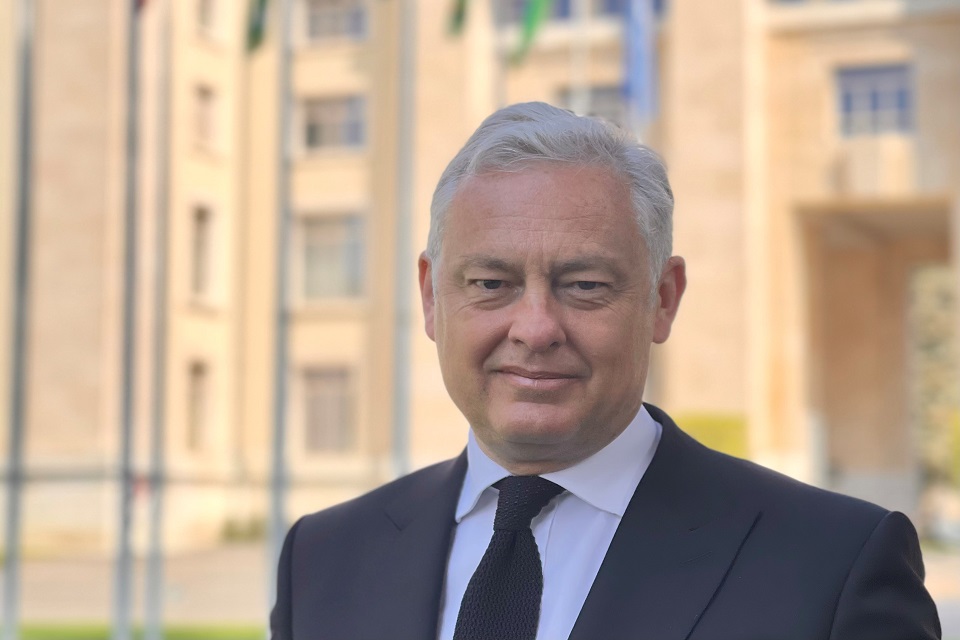UK Statement at the UNHCR Pledging Conference 2024
Statement delivered by the UK's Permanent Representative to the WTO and UN, Simon Manley, at the UN Refugee Agency's Pledging Conference.

Thank you, High Commissioner, for your opening comments.
Excellencies, Friends,
We know the global situation is stark.
As you say, High Commissioner, 2024 has been a year of relentless emergencies which have caused vulnerable people to flee their homes all over the world.
Russia’s illegal war in Ukraine is provoking continued human misery, as are devastating conflicts in Sudan, the OPTs, and elsewhere. And climate change is exacerbating the drivers of displacement. At times it feels that we are trapped in a spiral of ever-worsening displacement.
The United Kingdom will build on your efforts, High Commissioner, to draw the world’s attention to the devastating Sudan crisis. My government is doing its part, we are doubling humanitarian aid to Sudan, but funding is not enough : we must ensure aid actually reaches those who need it and we must bring an end to this devastating conflict.
These trends mean it is more important than ever to work in solidarity and in unity to ensure that in 2025 we do not see a further spate of crises in which the most vulnerable people suffer the most.
We know too that statelessness - a condition that strips people of their basic rights - is expected to evolve in the coming year as improvements in data show us the scale of the issue. The United Kingdom is committed to tackling statelessness. And as an early member of the Global Alliance to End Statelessness we encourage others to join us in working towards a future where statelessness is a thing of the past.
The United Kingdom welcomes the UNHCR’s Global Appeal for 2025. But clearly, High Commissioner, the appeal does not bring much good cheer, with the number of forcibly displaced expected to reach over 139 million over the next 12 months.
Under your leadership, UNHCR’s efforts to moderate its annual budget through increased efficiencies are important; we do not underestimate the challenge you face in driving through these vital reforms.
The United Kingdom remains a committed partner to UNHCR, and over the past year we have increased significantly our contributions, to £82m ($105m), an increase of over 40% on 2023.
The idiosyncrasies of the British financial calendar make it difficult for us to announce our overall annual commitment for 2025, but I am pleased to confirm that the United Kingdom will provide an unearmarked core contribution of £33 million in 2025, which we will further supplement through country-specific contributions disbursed throughout the year, in line with the most urgent needs.
My government is strongly committed to supporting forcibly displaced persons globally as well as the countries and communities who host them, to whom we extend, once again, our deep appreciation.
But kind words are insufficient thanks, and as the most recent Compact Indicator Report set out, the United Kingdom is also the 5th largest ODA donor to refugee response worldwide. We are proud to hold that position and urge others with capacity to step up their efforts.
With needs increasing and resourcing stretched, we must also welcome new ideas.
That is why the United Kingdom is a firm supporter of the Sustainable Responses approach initiated by you, High Commissioner.
Including refugees in existing national systems is not just the right thing to do, but it is the smart thing to do - unlocking human capital via refugees’ contribution to host communities and economies and avoiding costly parallel arrangements which demand too much of stretched humanitarian budgets.
The United Kingdom recognises UNHCR’s tremendous efforts to meet these challenges.
And I want to end by personally thanking you, High Commissioner, as you enter the final year of your term, and all UNHCR staff and partners, particularly those working on the front line, for their dedication and commitment, often in difficult and dangerous situations, to the cause of refugees.
Thank you.